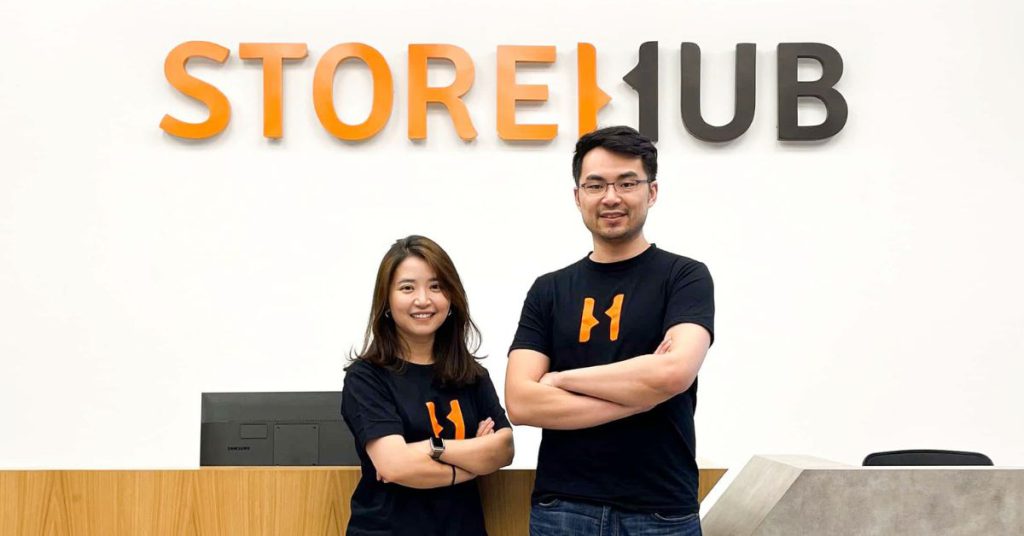Organised by MYStartup as part of Startup Week Malaysia 2023, The Failing Forward session at Colony Star Boulevard KLCC was graced with curse words, comedic moments, and somewhat cutting advice for entrepreneurs.
The lineup of panellists was:
- Adlin Yusman, Managing Director of Endeavor
- Damon Grow of Arkade Ventures
- Nadira Yusoff, founder and CEO of Kiddocare
- Wai Hong Fong, co-founder and Chieftain of StoreHub
And man, were they dishing out brutal truth after brutal truth that night. Here’s some of what we took away from the casual sharing session, so listen up, entrepreneurs.
1. It doesn’t get easier, you just get more options and alternatives
From the panel of seasoned entrepreneurs, the bad news is that the journey doesn’t get easier. But the good news is that you have many more options and alternatives these days to achieve what you want.
This nugget of wisdom can be applied to many parts of the entrepreneurial journey, but that night, the context was regarding funding opportunities.
Back then, entrepreneurs of early-stage startups were largely limited to seeking funding from venture capitalists (VCs), angel investors, or government grants.
Today, options have widened to include peer-to-peer (P2P) financing, equity crowdfunding (ECF), and more.
Despite more accessible avenues, it’s important to remember that the funds won’t just fall into your lap on demand. From the entrepreneurs’ experience, persistence and tenacity is still key.
This leads into the next point.
2. Stop making excuses in the face of failure
In a probably deserved callout, Wai Hong lightheartedly pointed out that Malaysians somehow have an ability to keep coming up with excuses for why something didn’t work out.

It’s easier to place the blame on external factors and take on a victim mindset than to reframe your thinking to become: This didn’t work out, so what can I do next?
After a certain point, you can’t keep pointing the finger at “systemic bias” and “corruption”, etc., and expect things to change. You have to get out there and do what it takes to get what you need.
In a much earlier venture, Nadira recalled an instance whereby she had hit rock bottom after a large project fell through at the last minute, leaving her company with few funds to continue. She still had a team to pay, and her own family to feed as a single mother.
Instead of feeling pitiful for herself, she made hard decisions. She sold her home and her car, and learnt how to do makeup for people in order to keep her family and business going.
With persistence, she made it out of that ditch and continued on to start better companies.
3. Don’t be too desperate, you can say no to VCs
That fear of becoming tight on money probably never leaves any business owner’s mind. Business is unpredictable, after all.
But something that all the entrepreneurs present that night agreed upon was that raising funds from VCs is a death wish, to put it bluntly.
It’s a sentiment that has echoed through the startup ecosystem for years—VC funds can destroy your company. That’s why many companies that can self-sustain opt to continue reinvesting in themselves.
Kiddocare was one such company, and they only decided to get VC funding recently, for their Pre-Series A round.

The round took over 1.5 years to close, and Nadira shared that a year and three months into the journey, they actually declined the investors.
By that point, they no longer needed the funds, but the moment they declined, Nadira said many investors suddenly showed an interest in them.
This leads to the next example of the panel’s advice to…
4. Raise when you don’t need the money
Raising funds when you don’t need the money means that you get to set the terms with investors. The ball will be in your court, and you can decline an investors’ offer much easier.
Nadira told her investors this round if they couldn’t raise the money in two months, they’re out. This resulted in them managing to raise from three VCs.
5. To build a world-class company, you need to be willing to pay the price
If you want to be the best, there’s a price to pay. As Wai Hong put it, Lebron James didn’t become Lebron James by eating Maggi, Pizza Hut, and KFC three times a day.
As an entrepreneur, you’ll often need to make sacrifices to see results. You have to put your foot down and make difficult decisions for the benefit of your company.
Sometimes this may end up with you being perceived as “the bad guy”, but Wai Hong believes that that’s the price to pay for your business to move forward.
There are nuances to these situations, of course, such as when the management team may sometimes be outright abusive, or the staff may be over-sensitive, but in general, many successful entrepreneurs appear to agree with the sentiment.
You can’t please everyone, no matter how hard you try.
-//-
Of course, these entrepreneurs’ experiences shouldn’t be taken as gospel, and you may disagree with some of their points.
That said, these are perspectives to keep in mind when making a decision on how you want to run your startup. Every startup has its different needs, and as a leader, you should adapt your approach accordingly.
- Read more about what happened at Startup Week Malaysia 2023 here.
- Read Malaysian startup stories here.
Featured Image Credit: Vulcan Post









